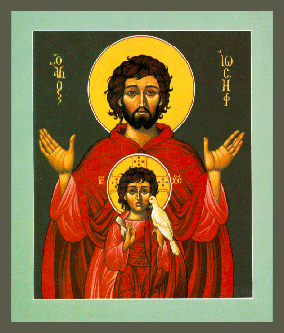This Christmas, the theology blogosphere has been blessed with an abundance of wonderfully thoughtful, beautiful, and incredibly real posts about the messiness, brokenness, and fleshliness of our existence, often in light of the Incarnation. (If anything, this post will simply be a variation on these much better posts.)
It’s a theme I resonate with. 2014 has been a year of surprises for me: some wonderful, many very disappointing. Reaching the end of doctoral coursework utterly exhausted me: I felt abandoned to doubt about whether I was really called to this line of work, and the first semester of studying for comprehensive exams has been profoundly isolating and… well, to put it as positively as possible, a revelation of how much growth has yet to occur in my habits. I honestly imagined that, by now, I would be more disciplined, more focused, less unsure, less selfish with my time, less frightened by unknowns. My “fantasy self” seems further from my reality than ever, and the distance between these two is often incredibly difficult to make a home in.

This Christmas, I’ve been praying and thinking a lot with St. Joseph. I haven’t spend much time with the usual images and the popular story of Joseph. These seem to light Joseph’s whole life from the certainty growing from the resurrection, as if Joseph knew the hidden plot-line of Jesus’s story the entire time.
The scriptural accounts, however, show a different Joseph, one consistently suspended in trust in God between fantasy and reality. Confined entirely to the first two chapters of Matthew and Luke, Joseph’s story involves no speaking parts, no extraneous details, no heroics, no craftiness or special gifts (besides being “a righteous man”: Matthew 1:19).
The character of Joseph’s whole recorded life seems to be one of uncertainty, surprise, disappointed expectations, and confused attempts to live what he thought was a righteous life:
*Trying to do what ought to be done faced with the pregnant Mary, Joseph’s righteousness is upset by God, whose angel insists that he marry this woman and raise this child (Matthew 1:18-25). Why would God desire that he—the righteous man—would become known as the man who impregnated his wife before their marriage? How could he raise a child that was not his own?
*Having settled comfortably into his occupation as an artisan in either Bethlehem (Matthew 2:22-23) or Nazareth (Luke 2:39), Joseph’s normal life is interrupted for years by the angel telling him to take Mary and the child to Egypt (Matthew 2:13-15). Did Joseph ever imagine that he would dwell unwillingly in a strange land, far from friends, family, and routine? Why would God send him and his family into Egypt, one of the Bible’s paradigmatically evil places, the land of slavery?
*Much of the rest of Joseph’s reactions indicate that he had no idea what was going on with his strange son. He is “amazed” at the shepherds’ vision (Luke 2:18) and at what Simeon says about this child in the Temple (Luke 2:33). He is “afraid” of the rulers who might harm him and his family (Matthew 2:22). He is “astonished” at Jesus’s lack of consideration for them when he remains behind in the Temple, and he “did not understand” the strange rationale for Jesus’s behavior (Luke 2:48, 50).
*Given his absence after these chapters dealing with Jesus’s early life, Joseph likely died before seeing how Jesus’s story—a story inextricably interwoven with Joseph’s life—hung together in the cross and the empty tomb. Would Joseph have known how the strange events and seeming failures of his own life cohered, made sense? Surely, the story of his life from meeting Mary forward would not have been something Joseph wanted or imagined for himself.

Yet it was precisely in this distance, the brokenness of Joseph’s fantasies, that the Son of God chose to dwell. The incarnate God chose to be held in the arms of a man whose reputation was sullied. The omnipotent-God-made-infant chose to be protected by a man who felt abandoned and exposed in Egypt. The creative-Meaning-of-the-universe-enfleshed chose to learn from a man who was consistently amazed, astounded, confused, and scared by God’s ways. It was not Joseph’s fantasies of living a righteous, well-ordered, recognizably blessed life that enabled God to enter into our world; rather, the poverty, fear, and shakenness of Joseph’s disappointing reality was the locus for God’s kingdom to begin shining forth. Joseph’s trust in God beyond his own expectations and fantasies provides the only constant in his story.
This has been a great comfort for me. Jesus Christ is not my-fantasy-self-made-flesh. He did not come to dwell in my heart construed as a trophy room, surrounded by my triumphs, successes, or self-willed overcoming of fault and vice. He chose to be born in the mess that I am. He chooses to dwell in the discomfiting distance between who I am and who I want to be.
Like Joseph, our task is not to be some fantasy projection of ourselves, but to be willing to trust and stay with this God of surprises in our confusion, in our brokenness, in our failure. Our broken lives and disillusioned hearts are the manger he chooses, the exiled home he dwells in, the embrace he desires, so long as we give that place to the Lord in trust. Like Joseph, let us dwell with him without seeing the end, without completely understanding, trusting that the God who loves us into existence burns with love for us and chooses to know us, to be present to us, to re-create us, to dwell with us even—no, especially—here.

You must be logged in to post a comment.